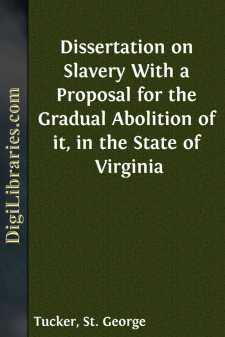Categories
- Antiques & Collectibles 13
- Architecture 36
- Art 48
- Bibles 22
- Biography & Autobiography 815
- Body, Mind & Spirit 144
- Business & Economics 28
- Children's Books 18
- Children's Fiction 14
- Computers 4
- Cooking 94
- Crafts & Hobbies 4
- Drama 346
- Education 58
- Family & Relationships 59
- Fiction 11835
- Games 19
- Gardening 17
- Health & Fitness 34
- History 1378
- House & Home 1
- Humor 147
- Juvenile Fiction 1873
- Juvenile Nonfiction 202
- Language Arts & Disciplines 89
- Law 16
- Literary Collections 686
- Literary Criticism 179
- Mathematics 13
- Medical 41
- Music 40
- Nature 180
- Non-Classifiable 1768
- Performing Arts 7
- Periodicals 1453
- Philosophy 65
- Photography 2
- Poetry 896
- Political Science 203
- Psychology 44
- Reference 154
- Religion 515
- Science 126
- Self-Help 85
- Social Science 83
- Sports & Recreation 34
- Study Aids 3
- Technology & Engineering 60
- Transportation 23
- Travel 463
- True Crime 29
Our website is made possible by displaying online advertisements to our visitors.
Please consider supporting us by disabling your ad blocker.
Dissertation on Slavery With a Proposal for the Gradual Abolition of it, in the State of Virginia
Description:
Excerpt
The following pages form a part of a course of Lectures on Law and Police, delivered in the University of William and Mary, in this commonwealth. The Author considering the Abolition of Slavery in this State, as an object of the first importance, not only to our moral character and domestic peace, but even to our political salvation; and being persuaded that the accomplishment of so momentous and desirable an undertaking will in great measure depend upon the early adoption of some plan for that purpose, with diffidence submits to the consideration of his countrymen his ideas on a subject of such consequence. He flatters himself that the plan he ventures to suggest, is liable to fewer objections than most others that have been submitted to the consideration of the public, as it will be attended with a gradual change of condition in the blacks, and cannot possibly affect the interest either of creditors, or any other description of persons of the present generation: and posterity he makes no doubt will feel themselves relieved from a perilous and grievous burden by the timely adoption of a plan, whose operation may be felt by them, before they are borne down by a weight which threatens destruction to our happiness both public and private.
âËž The following ADDITIONAL NOTES have been received from the Author since the body of this work was printed off.
In page 20, after the word arms, in line 5, read this note:
This was the case under the laws of the state; but the Act of 2. Cong. c. 33. for establishing an uniform militia throughout the United States, seems to have excluded all but free white men from bearing arms in the militia.
To the word slave, page 47, line 14, add the following note:
It may not be improper here to note, that the first congress of the United States, at their third session, Dec. 1793, passed an act to prohibit the carrying on the slave trade from the United States to any foreign place or country; the provisions of which seem well calculated to restrain the citizens of united America from embarking in so infamous a traffick.
ON THE
STATE OF SLAVERY IN VIRGINIA.
In the preceding Enquiry into the absolute rights of the citizens of united America, we must not be understood as if those rights were equally and universally the privilege of all the inhabitants of the United States, or even of all those, who may challenge this land of freedom as their native country. Among the blessings which the Almighty hath showered down on these states, there is a large portion of the bitterest draught that ever flowed from the cup of affliction. Whilst America hath been the land of promise to Europeans, and their descendants, it hath been the vale of death to millions of the wretched sons of Africa. The genial light of liberty, which hath here shone with unrivalled lustre on the former, hath yielded no comfort to the latter, but to them hath proved a pillar of darkness, whilst it hath conducted the former to the most enviable state of human existence. Whilst we were offering up vows at the shrine of Liberty, and sacrificing hecatombs upon her altars; whilst we swore irreconcilable hostility to her enemies, and hurled defiance in their faces; whilst we adjured the God of Hosts to witness our resolution to live free, or die, and imprecated curses on their heads who refused to unite with us in establishing the empire of freedom; we were imposing upon our fellow men, who differ in complexion from us, a slavery, ten thousand times more cruel than the utmost extremity of those grievances and oppressions, of which we complained. Such are the inconsistencies of human nature; such the blindness of those who pluck not the beam out of their own eyes, whilst they can espy a moat, in the eyes of their brother; such that partial system of morality which confines rights and injuries, to particular complexions; such the effect of that self-love which justifies, or condemns, not according to principle, but to the agent....













